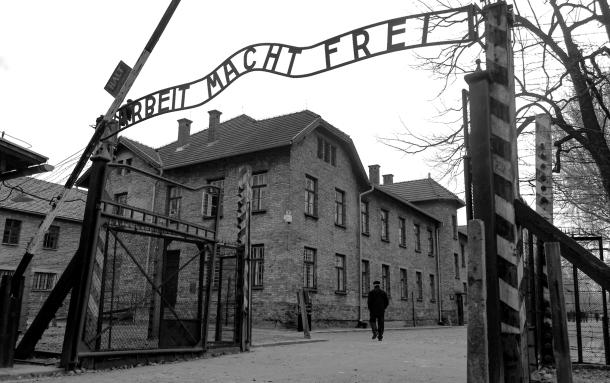Europe marked International Holocaust Remembrance Day with solemn ceremonies, honoring one of the darkest chapters in human history. In Poland, King Charles delivered a poignant speech commemorating the 80th anniversary of the liberation of Auschwitz, reflecting on the enduring lessons of the Holocaust.
“This is both a somber and sacred moment,” King Charles said. “We remember the six million Jews, alongside Sinti, Roma, disabled individuals, LGBTQ+ communities, political prisoners, and countless others who suffered under Nazi brutality.”

Speaking at the Jewish Community Centre (JCC) in Krakow—a city once home to a vibrant Jewish population—the king emphasized the importance of remembrance. “We recall the depths of humanity’s capacity for evil when hatred is left unchecked. Yet, as survivors grow fewer, the duty to remember becomes even more vital. It shapes our present and guides our future.”
Krakow, a city that endured immense suffering during the Holocaust, has seen its Jewish community rebuild from the ashes. The JCC, established by King Charles in 2008, stands as a symbol of resilience and hope. “Projects like this remind us of the power of faith and compassion. They inspire us to create a kinder, prouder world for generations to come,” he added.
A Warning Against Rising Antisemitism
King Charles also addressed the alarming resurgence of antisemitism worldwide. Recent data from the Anti-Defamation League (ADL) reveals a 361% spike in antisemitic incidents in the U.S. following the October 7, 2023, Hamas attack on Israel. This troubling trend mirrors the rise of far-right, nationalist movements across Europe, particularly in Germany and Austria, where anti-immigrant sentiments have gained traction.
“The resurgence of such hatred is dangerous,” the king warned. “We must confront it with unwavering resolve, ensuring the horrors of the past are never repeated.”
A Call to Action
International Holocaust Remembrance Day serves as both a tribute and a call to action. It reminds us of the atrocities committed and the resilience of those who survived. More importantly, it challenges us to combat hatred and build a world rooted in empathy and understanding.
As King Charles concluded, “Remembering the past is not enough. We must use it to inspire a future defined by compassion, dignity, and unity.”
